|
Ah, the trusty plastic storage bin. A common sentiment is, “Great! All the extra stuff that doesn’t fit in our living spaces has somewhere to go, out of the way!” Beware - using plastic storage bins to “hide all the clutter” in your space can actually work against you if you’re not careful.
If we filled one or several of these bins every time our spaces got too cluttered for our liking, without first addressing if and how these items will be used again, we’d someday wind up with stacks of mystery plastic bins. Without categorizing and clearly labeling their contents, finding what we want later might be tedious and exhausting. Of course, there are ways to utilize this tool to get and stay organized. In my experience, these are the most common uses for plastic storage bins. Below each example, I’ve provided tips for managing each category: Seasonal or other home decor not being used This one can be tricky: we might have decorations that have been passed down from family members, or that we used during a particularly sentimental time in our life. Ask yourself: Do I use all of these decorations? Is there anything broken that could be repaired, or is it too far gone? If you haven’t used some of these items in over a year, it might be time to consider letting them go to a home where they’ll be used. Sporting or other recreational equipment I’d offer similar advice for addressing this as I did with the home decor. Make sure all the gear is in good repair and has been used within the last two years. Be honest about whether you’ll be using it again! We’ll cut this category a little slack because the pandemic might have put a temporary hold on your favorite sports. Toys children don’t play with anymore Oftentimes, these get put away to make space for new toys that have moved in. The intention behind storing the toys might be to offer them to new family members or our friends’ children in the future. It’s likely that day may never come. If the collection becomes too much to manage, consider moving items out of the house now. First, ask friends and family if there’s anything they might want. Otherwise, there are local children who could use those toys now. People have good luck with Facebook, NextDoor, or making a donation drop. Make sure to separate out the broken toys - nobody needs the uneccesary frustration. Clothing that’s out of season or outgrown The routine of swapping out cold/warm weather clothing can be quite the chore. I encourage paring down your wardrobe in order to eliminate the clothing swapping routine. If it feels best for you to switch out seasonal clothing but it’s become too much, it’s time to evaluate and simplify. Are there pieces that remain in the bin year round but stick around because “there’s room for them?” For clothing that’s been outgrown - is there someone you know who can use it now? If the item of clothing fits again someday - is it something you’d want to wear, or would you just go out and get new clothes anyway? Guests are coming over and to hide the clutter…in the bin it goes. The general idea in this scenario is neat stacks in the garage look more inviting than clutter all over the house. These bins are the most time consuming to sort and address because there could be multiple categories in one bin. Books might be mixed with clothing, kitchen gadgets, toys, crafts, and a whole array of other items. Do your best to sort into categories and address from there. Has life felt better with this stuff out of your living space? You likely won’t miss it if you donate it! Do you feel like your plastic bin storage system is helping you make easy swaps or does it weigh you down? What are your favorite items to revisit when it’s time to access them?
0 Comments
As the holidays approach in 2020, we might realize our traditions won’t be celebrated the same way they have in the past. In my family, we’ve discussed ways we might alter our celebrations this year. Thanksgiving is, for many families, a day where we gather for a nice meal and relax together to catch up, laugh, and share stories. It’s a great day for connection and reminiscing.
Last week, a friend of mine pointed out that November is Family Stories Month. As an organizer who helps people organize their memories and legacy, I can’t believe I had no idea there was an entire month dedicated to this very important practice! I thought this might be a good opportunity to offer some encouragement if your plans are looking different than before. While we may not all be celebrating in person this year, thanks to technology and good old fashioned phone conversation, we are still able to find ways to connect and share stories. Zoom, the popular video conferencing platform recently announced that from midnight on November 26, 2020 through 6am on November 27th, they will be lifting their 40-minute time limit from free accounts:
If you’ve wanted to begin recording family history or regularly told stories, this could be the year your family begins to honor Family Stories Month. The good news is this tradition can be carried on for years to come, whether you’re together or apart!
Would you like to incorporate stories into your in-person or virtual celebration?
How have your celebrations changed this year? I’d love to hear from you via email or in the comments below. Ahhh, shiny, new school and office supplies.
Do you find that aisle or display at the store particularly enticing? I do. All those differently colored pens, markers, neatly packaged pencils, and rows of empty notebooks seem to be full of possibilities. Considering these items are usually on sale around back to school time, they can be tempting pieces to “stock up” on for future use. I was shopping last week, replenishing some essentials for the house. I just couldn’t help but notice these items as I was walked by, with a big “CLEARANCE” sign over them. It’s October - the back-to-school transition has now passed and the bulk of this stuff has to move to make space for the next season’s offerings. I stood there and took a good look at everything. And then I snapped out of it, “you already have what you need.” You might have several notebooks hanging around with something written on a few pages, and you keep them around “for when they’re needed.” I used to - they took up a lot of space on my bookshelf, and the collection seemed to keep growing. Consider this: it can take months, or over a year to completely use up a notebook with consistent use - if you aren’t a student. The same goes for pens, pencils, and markers. A quick internet search told me that the average ball point pen gets you about 1 kilometer of writing. That’s almost 3/4 of a mile. If you’ve got hundreds of pens hanging around the house, consider that the ink might even dry out before you can get to them all, rendering the pens unusable. Now I have one notebook. Along with a few pens and pencils that are my absolute favorites. Some markers go into my organizing tool kit for labeling. The rest have been donated. I use the notebook to jot down quick lists, take notes in a meeting or during a call, and brainstorm ideas. And then I immediately take action on what’s written down: complete the tasks, transfer the notes to digital if needed, and get rid of the page. No more extra noise. If you keep a paper journal, of course just having one going at a time keeps entries in chronological order. When it’s full, getting to pick out a new one feels special. Here’s the bottom line: If school and office supplies are always available, and we’re using digital formats more and more to store our information, then we simply don’t need to have that many backups hanging around. Getting this stuff on an “as needed” basis helps keep the clutter at bay and saves the hassle of searching for a pen that actually works. What do you use notebooks for? Are you inspired to pare down? I’d love to hear from you in the comments below! If you’ve grown up in the US, you might have been brought up in a culture that believes rest is unproductive and lazy. The phrase “oh, I’m so busy!” being worn as a badge of honor, and living our lives at a frantic pace being seen as a marker of success has been the norm.
As you know, that came to a screeching halt in March of this year. Yes, there has been uncertainty and hardship since the start of spring, and we don’t want to minimize that. But there has also been a huge shift in our daily lives for the better - a collective slowing down and prioritizing what matters most. It’s something that many of us imagined would only happen later on, in our golden years. When it all began, I thought, “now what?” Admittedly, I felt a bit lost when my calendar was suddenly clear of in-home client work, volunteer activities, and social events. As someone who helps others pare down and slow down to live easier, less chaotic lives, I found even I had some work to to. But as the weeks went on, I began to notice this slower pace allowed for higher quality experiences in my everyday life. A recent article from Psychology Today had me reflecting on how my own life has changed for the better: “Someday when I have more time…” became “right now.” Do you have projects and ideas you’d like to implement when there’s more time? Most of us do - there might be partially-completed craft projects, books to read, or new hobbies to take up. This became a time to face all of that - if I didn’t have time now, then it had go - and it did without guilt! Activities outside of the home became enhanced. With no pressure to plan or attend any large gatherings or distant travel, time out of the house has taken on a different quality. A walk at the same local place hasn’t become boring - instead it’s an opportunity to observe different wildlife and the changes throughout the seasons. Time with friends and family has taken deliberate planning and time spent in-person is much more appreciated than it was in the past. Less really is more, and has taken on a new meaning. Moving forward with a less packed schedule is an attainable reality. Having felt the benefits of slower and more focused daily living, adding more activity back in has become more intentional, and saying "no" a bit easier. The thought of going back to a frantic pace of life might feel overwhelming - this is a great opportunity to pare down the schedule long-term. How has your life improved by slowing down? What are some habits you’ve incorporated that you’ll be continuing on with? What have you let go of that just wasn’t working? I’d love to hear from you, drop a line in the comments below! As a business owner who loves living and working along with a diverse population, I feel called to respond to the civil unrest we are experiencing in the United States. It’s something that has been going on for hundreds of years, and is deeply rooted into the structures and institutions in our society. I would like to state that I stand by the Black community and the Black Lives Matter movement. I’m listening, learning everything I can about racial injustice, and speaking out in my everyday life. I became a professional organizer because I care about people and it makes me feel good to help them. My work involves helping people declutter their homes and schedules, so that they can make space for things and activities that matter most, and that includes making time to connect with our community and helping others. I know the perfect statement doesn’t exist. While these conversations are difficult and uncomfortable, they are necessary. In the past, my rule (like many other business owners and family dinner tables alike) was, “don’t talk about politics or anything controversial.” As we may discover while we’re decluttering our homes, change is often difficult and uncomfortable, but without it, we can’t experience growth or move toward a better situation. The work toward anti-racism doesn’t happen overnight, it’s a marathon. The COVID-19 crisis has shown us that we can respond quickly for the greater good, and justice for the Black community is no exception. What follows is not a “definitive guide” on how to fight racism, this is what I have been doing to learn more and take action. If you're feeling like you want to get involved but don't know where to begin, this could be a start. And likewise, I welcome feedback and constructive conversation! Just like with getting organized, it’s those consistent, small steps that lead to big changes in the long run. Reflection
I’ve learned that no matter who we are, we all experience some levels of bias. Merely by living in a society where laws and rules disproportionately affect people of color means there's an effect on everyone. This can get uncomfortable, but self-awareness is a great first step in improving the situation for marginalized groups. I’ve been thinking about how I value differences and what I can do to encourage more diversity in my day to day living. Reading & Listening It has been especially helpful to take a step back from social media in order to read books, watch documentaries, and listen to podcasts. It’s also felt really supportive to listen to friends, colleagues, and clients talk about their experiences - what is it like to live your everyday life as a Black person? This is by no means an extensive list, but the following have been helpful so far: Watch The Super Organizer - James Lott, Jr.: James is a certified life coach and fellow professional organizer. As a black male in a predominantly female industry, he openly shares his insight with us. James radiates positivity, confidence, and joy - his clients in LA are lucky people! The Super Organizer Man In The PO Industry: I'm A Big Black Man! Super Organizer Man in the PO Industry: A Message from a Black Male PO! An award-winning documentary about the prison system in America. This was an eye-opening watch: 13th Listen Brené Brown - Unlocking Us Oprah’s Super Soul Conversations “Where do we go from here?” Part 1 and 2 Kimberlé Crenshaw - Intersectionality Matters! Read Robin Diangelo - White Fragility Ibram X. Kendi - How to Be an Antiracist Layla F. Saad - Me and White Supremacy: Combat Racism, Change the World, and Become a Good Ancestor Frances E. Kendall, Ph.D. - How to Be an Ally if You Are a Person with Privilege Community Outreach There are many ways in which racial inequalities are built into our society. Do you have any issues that are near and dear to you? Just like when we’re organizing and decluttering, trying to focus on too much at once might be counterproductive. Consider your own interests and resources nearby. Donating money, time, mentorship, etc. can be a way to contribute to a cause that feels meaningful:
Do you have any additional resources to share that have been helpful? I’d love to hear from you as we continue on this journey together. |
Archives
February 2021
Categories |
|
Elena DaFonte Professional Organizer, East Providence, RI e-mail: elena@simplelivingstrategies.com phone: (617) 930-0577 hours: Monday - Friday, 8am - 5pm |
©2024 Elena DaFonte
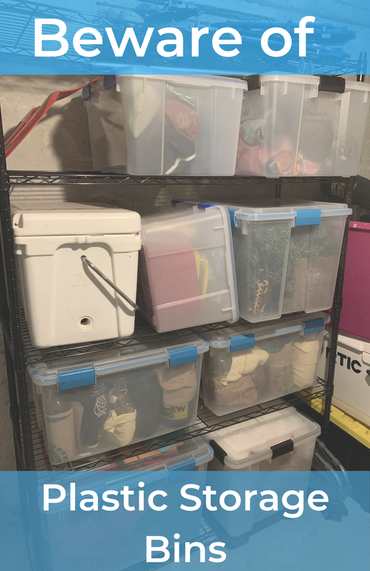
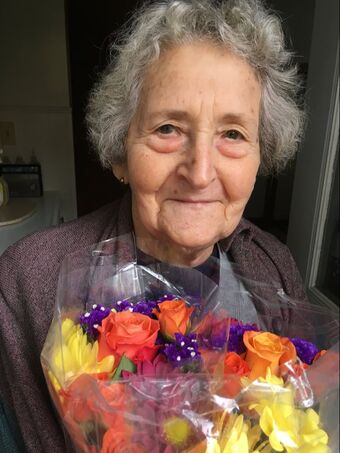
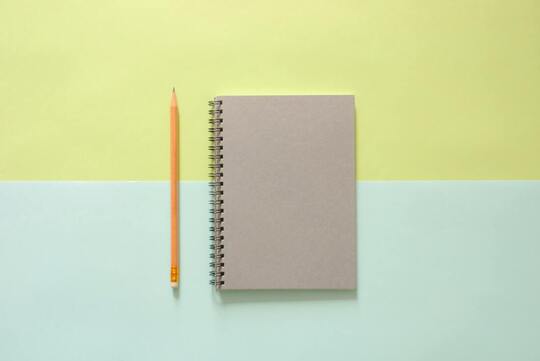

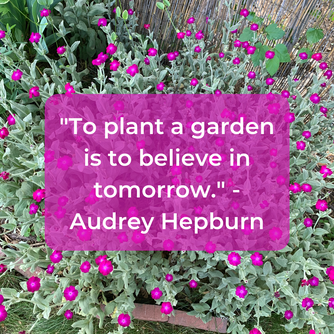
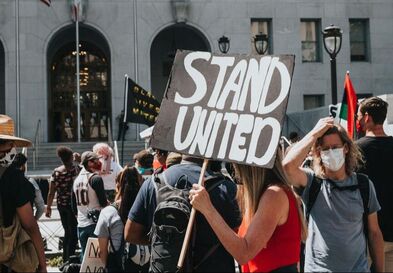
 RSS Feed
RSS Feed
